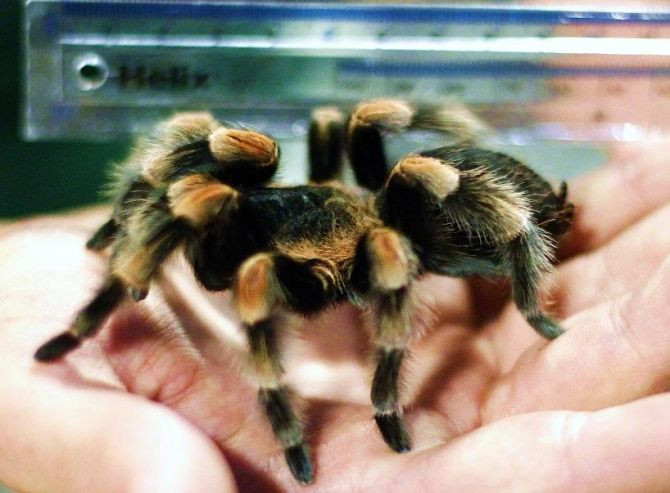Spiders Appear Bigger With More Fear

The more a person is afraid of a spider, the larger the person sees the spider to be, psychologists revealed on Friday.
"If one is afraid of spiders, and by virtue of being afraid of spiders one tends to perceive spiders as bigger than they really are, that may feed the fear, foster that fear, and make it difficult to overcome," said Michael Vasey, professor of psychology at Ohio State University and lead author of the study, in a statement.
Spider phobia is believed to affect about one in six males and half of all females.
While this distorted perception produced by the fear of spiders may not interfere with daily living, people who are afraid of needles for instance may also perceive the needles to be larger, thus deterring them from injections and getting the treatments they need, researchers said.
The study authors said that the latest findings of the how phobia affects perception of feared objects may help doctors design more effective treatments for people wanting to overcome their fears.
The study consisted of 57 arachnophobes who researchers had asked to submit to five encounters, over a span of eight weeks, with five different varieties of tarantulas that varied in size from about one to six inches long.
Participants were asked to estimate the size of the spiders after each encounter, and researchers found that the more participants were afraid of spiders, the more they estimated the tarantulas’ sizes to be.
"We already knew fear and anxiety alter thoughts about the feared thing. For example, the feared outcome is interpreted as being more likely than it really is. But this study shows that even perception is altered by fear. In this case, the feared spider is seen as being bigger. And that may serve as a maintaining factor for the fear," Vasey said.
"Ultimately, we are interested in identifying predictors of relapse so we can better measure when a person is done with treatment," he added.
The study is published in the Journal of Anxiety Disorders.
Published by Medicaldaily.com



























